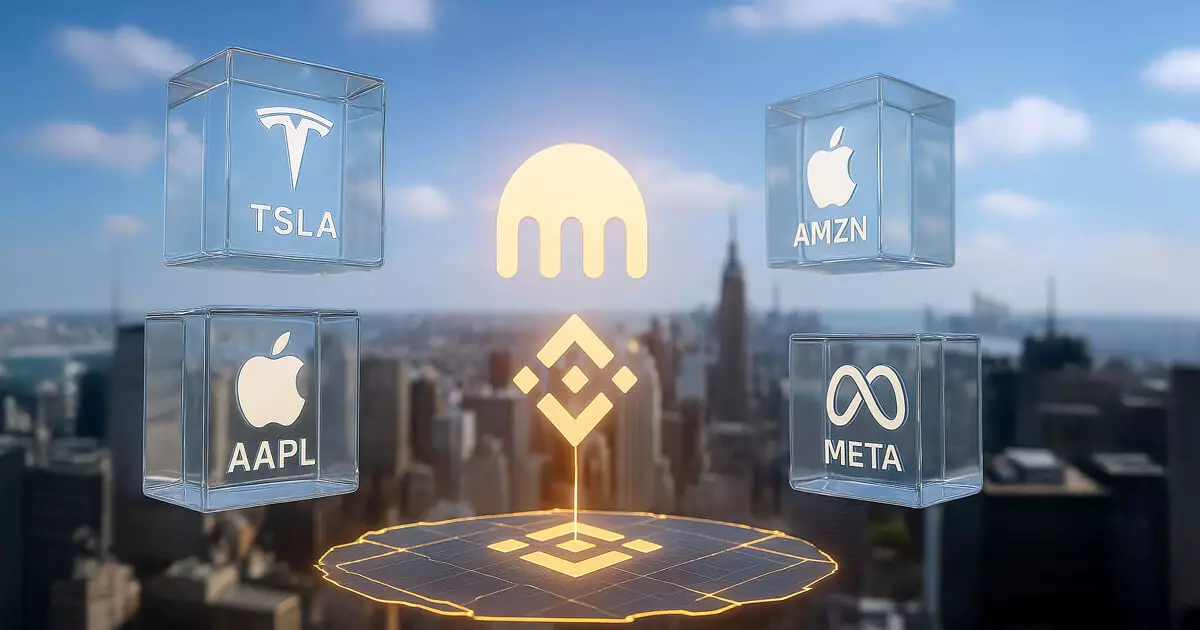In a move that jolts the established financial landscape, Kraken’s expansion of its xStocks product onto Binance-backed BNB Chain signals a seismic shift in how equities might be traded globally. This initiative underscores a disruptive trend—merging traditional stock assets with blockchain technology to forge a new, decentralized frontier for investment. By tokenizing major US equities like Apple, Tesla, and NVIDIA into BEP-20 tokens, Kraken isn’t merely digitizing assets; it’s fundamentally altering their very nature. These programmable tokens foster seamless, real-time transfers that cut through centuries-old custody and settlement processes, creating a form of “instantaneous equities” accessible 24/7 from anywhere in the world. Such a shift doesn’t just broaden accessibility; it threatens to dismantle the very fabric of traditional market institutions built on controlled hours and centralized liquidity pools.
Decentralization as a Double-Edged Sword
The appeal of this innovation lies in its promise of liquidity, transparency, and composability with DeFi protocols—transforming how investors could engage with equities. Kraken’s leadership envisions a “chain-neutral” ecosystem, where assets aren’t confined to specific platforms or jurisdictions, enhancing fluidity and depth in global markets. Yet, this unbound potential fosters inherent risks. The same features that make tokenized assets attractive—instant settlement, 24/7 trading, and broad interoperability—also amplify volatility and risk exposure. Traditional institutions, accustomed to structured trading hours and custodial safeguards, may struggle to adapt to such a fluid environment. As more platforms embrace decentralization, the walls of legacy exchanges will erode, forcing major exchanges like NYSE and LSE into a stark choice: innovate or perish.
Disrupting the Power Dynamics of Finance
This transformation reveals a fundamental tension: traditional exchanges rely heavily on controlled liquidity, trading hours, and fee-based revenue streams—elements increasingly threatened by blockchain platforms capable of enabling continuous, borderless trading. As tokenized equities become mainstream, the economic model of old-school stock exchanges faces erosion, risking a redistribution of power toward agile fintech firms and decentralized platforms. In this environment, revenue from trading fees and proprietary data will likely shift, challenging the economic sustainability of established centralized exchanges. While proponents tout the benefits of democratized access and innovation, critics warn of increased volatility and the potential for financial instability if regulators fail to keep pace with these rapid technological changes.
Implications for Regulation and Stability
The ascent of tokenized equities portends a future where traditional financial safeguards might no longer suffice. The rapid, round-the-clock trading enabled by blockchain could create new systemic risks—particularly if regulators, who are often slow to adapt, lack the tools or will to oversee these emergent markets effectively. This scenario raises profound questions about investor protection, market integrity, and the stability of the global financial system. While advocates argue that technology democratizes investment opportunities, skeptics see a growing divide: a financial ecosystem increasingly dominated by entities outside the purview of existing regulations, potentially amplifying systemic risks and creating opportunities for misconduct absent robust oversight.
In essence, Kraken’s strategic push onto BNB Chain isn’t just about expanding a product—it signals a paradigm shift. Whether this evolution will elevate the financial markets or destabilize them hinges on how regulators, industry players, and investors respond to the mounting challenge of balancing innovation with stability.


Leave a Reply